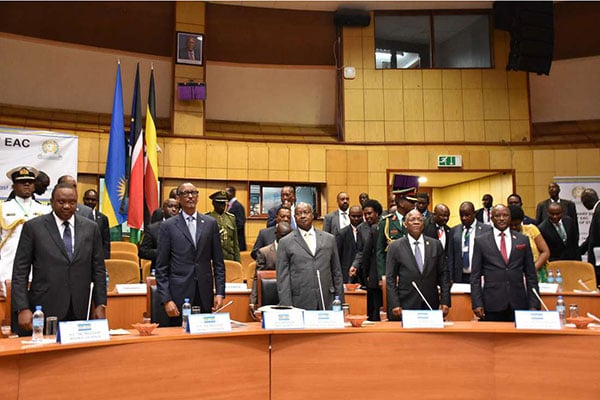Leaders from the seven East African Community (EAC) partner states are converging in Arusha this week, for the 23rd ordinary EAC Heads of State Summit.
The two-day high-profile meeting will also see South Sudan’s President Salva Kiir replacing Burundi’s President Evariste Ndayishimiye as the chairperson of the regional economic bloc.
Among other issues that will take centre stage in the summit will be climate change and food security.
Kiir is expected to steer the regional bloc at a time when the region is holding discussions on regional peace and security, particularly the crisis in Sudan and the Eastern Democratic Republic of Congo (DRC), where South Sudan has deployed troops as part of the East African Regional Force to help restore peace in the country.
The EAC chairmanship is a rotating position that is held by each member state for a one-year term.
The current chairperson of EAC is Burundi’s President Ndayishimiye, who was elected in July last year by East African heads of state during the 22nd Ordinary Summit of EAC Heads of State held in Arusha, Tanzania.
The EAC is currently grappling with the problem of pollution and waste management.
Such problems are not limited to the borders of a country.
The harmful effects extend beyond the borders of the originator of the pollution.
It is for this reason the development of policy frameworks for Pollution Control and Waste Management remains a priority for the Environment and Natural Resources Sector of the EAC Secretariat.
All partner states are parties to the Eastern African Regional Framework Agreement on Air Pollution (Nairobi Agreement, 2008).
The states agreed to develop actionable targets to address air pollution in the following key areas: Transport, Industry and Mining, Energy, Waste, Vegetation Fires, Indoor Air pollution, Urban Planning and Management.
The EAC is working on development and harmonisation of standards and regulations on pollution control and waste management.

